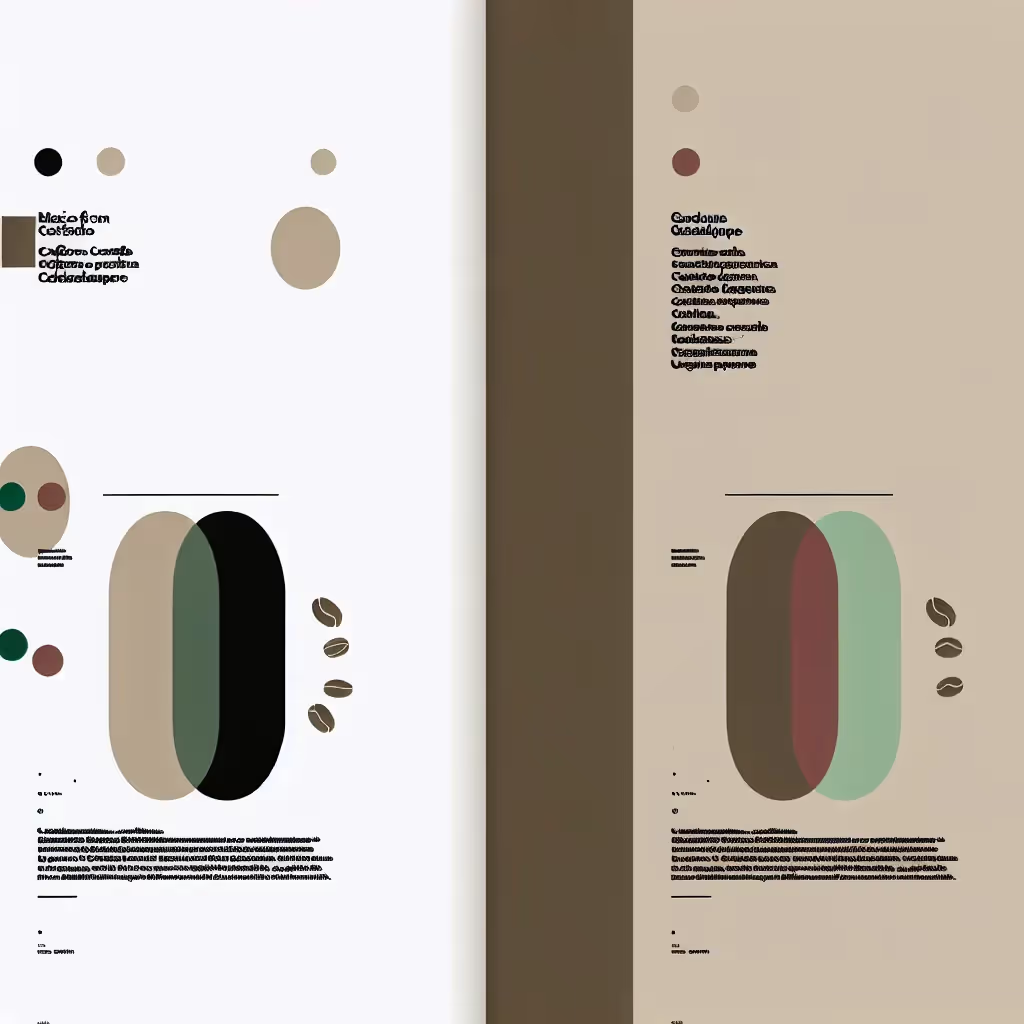Mexican Vs. Bolivian Coffee
This comparison explores the nuances of Mexican and Bolivian coffee, highlighting their distinct flavor profiles, growing conditions, and brewing methods to help coffee enthusiasts make informed choices.

Brief Description
Mexican coffee is known for its light body, mild flavor, and bright acidity. Grown primarily in the southern states of Chiapas, Veracruz, and Oaxaca, Mexican coffee benefits from the region's rich volcanic soils and high altitudes. The country's coffee industry has a strong focus on organic and shade-grown practices, resulting in beans that are both environmentally friendly and full of character. Mexican coffee often exhibits nutty, chocolatey notes with a subtle fruitiness, making it a versatile and approachable choice for coffee lovers.
Bolivian coffee is a hidden gem in the world of specialty coffee. Grown in the lush Yungas region, these beans benefit from high altitudes and rich volcanic soils. Known for their bright acidity, complex flavor profile, and smooth body, Bolivian coffees often showcase notes of chocolate, citrus, and stone fruits. Despite challenges in production and export, Bolivian coffee is gaining recognition for its unique character and high quality.
Importance of Comparison
Comparing Mexican and Bolivian coffee is crucial for coffee lovers seeking to expand their palate. These origins offer unique flavor profiles and growing conditions that contribute to their distinct characteristics. Understanding the differences helps consumers make informed decisions based on their taste preferences and brewing methods, while also supporting diverse coffee-producing regions.
Key Attributes
Origin
Mexican
Bolivian


Consumer Guide
When choosing between Mexican and Bolivian coffee, consider your flavor preferences and brewing methods. Mexican coffee offers a lighter body with nutty and chocolatey notes, ideal for pour-over and cold brew. It's a great choice for those who enjoy a milder, approachable cup. Bolivian coffee, with its bright acidity and complex profile, shines in French press and espresso preparations. If you prefer a more nuanced flavor with citrus and stone fruit notes, Bolivian coffee might be your pick. Consider trying both origins in different brewing methods to fully appreciate their unique characteristics and find your perfect cup.
Expert Opinions
Coffee expert Maria Rodriguez notes, 'Mexican coffee's mild flavor and light body make it an excellent choice for everyday drinking, while Bolivian coffee's complexity and bright acidity offer a more adventurous experience.' Roaster John Smith adds, 'The higher altitudes of Bolivian coffee farms contribute to its distinct flavor profile, setting it apart from the more widely available Mexican beans. Both origins have their strengths, catering to different palates and brewing preferences.'
FAQs
Mexican coffee typically offers nutty and chocolatey notes with mild citrus undertones, resulting in a light and approachable cup. Bolivian coffee, on the other hand, presents a more complex profile with prominent chocolate, citrus, and stone fruit flavors, accompanied by a bright acidity and smooth body.
Mexican coffee excels in pour-over, drip, and cold brew methods, highlighting its light body and mild flavors. Bolivian coffee shines in pour-over, French press, and espresso preparations, which accentuate its complex flavor profile and bright acidity.
Mexican coffee is grown at altitudes of 900-1800m in volcanic soils, contributing to its mild flavor and light body. Bolivian coffee is cultivated at higher altitudes of 1200-2100m, resulting in a more complex flavor profile and brighter acidity. Both benefit from rich volcanic soils, but the altitude difference plays a significant role in their distinct characteristics.
Both Mexican and Bolivian coffees employ similar processing methods, including washed, natural, and honey processing. However, the specific techniques and traditions in each country may vary, contributing to subtle differences in flavor profiles.
Mexico produces significantly more coffee than Bolivia, with an annual production of 234,000 metric tons compared to Bolivia's 25,000 metric tons. This difference in scale affects availability and potentially influences the specialty coffee market for each origin.
Mexican coffee is often recommended for those new to specialty coffee due to its mild flavor, light body, and approachable taste profile. Its nutty and chocolatey notes are familiar to many coffee drinkers, making it an excellent starting point for exploring single-origin coffees.
Conclusion
Both Mexican and Bolivian coffees offer unique experiences for coffee enthusiasts. Mexican coffee, with its light body and mild flavor, is perfect for those seeking an approachable, everyday cup with nutty and chocolatey notes. Bolivian coffee, boasting a complex profile with bright acidity and fruity undertones, caters to those looking for a more adventurous coffee experience. Consider trying both origins in various brewing methods to fully appreciate their distinct characteristics. Ultimately, your choice between Mexican and Bolivian coffee will depend on your flavor preferences, brewing style, and desire for either a comforting or more nuanced coffee experience.






